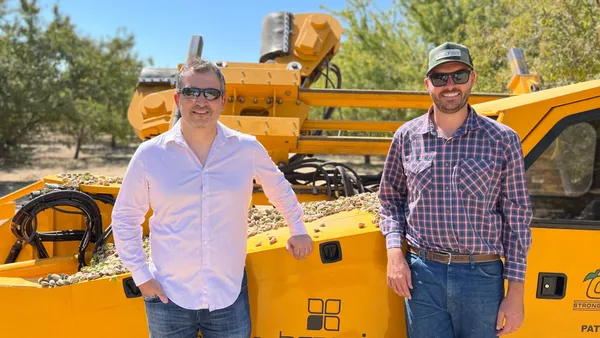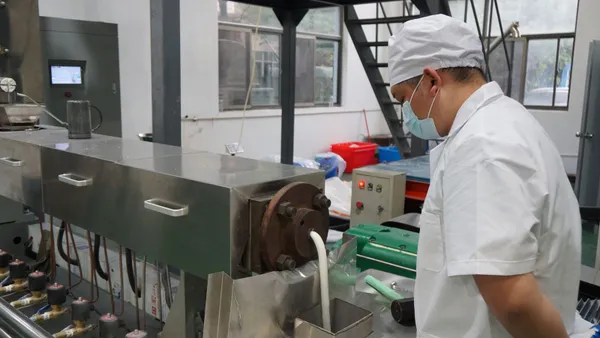Dive Brief:
- Mars, Inc., will scale its investment in regenerative agriculture as part of a $1 billion push to halve the Snickers and Starburst maker’s emissions by 2030.
- The CPG giant, also behind Ben’s Original and pet food brands Pedigree and Royal Canin, said last week it will reformulate products and add “carbon intensity” as a differentiating criteria among suppliers to encourage farms to reduce their climate impact.
- The moves could result in changing suppliers or geographic shifts in sourcing, the company said in its roadmap to net-zero emissions. Mars also is exploring opportunities to work with farms and improve manure management and growing practices for crops, such as rice.
Dive Insight:
Around 65% of Mars’ current emissions are tied to agriculture or deforestation and other land use changes, which occur to make way for crop production.
In its road map to net-zero, the company acknowledged that farming “is both the biggest part of our footprint and one of the most challenging” to address. Given the uncertainty around how much carbon can be sequestered through climate-smart practices, Mars is concentrating on addressing agriculture’s energy use for now.
“Even focusing in the short term only on the electricity use and converting it to renewable sources represents a significant opportunity with little to no impact on the farming process,” the report said.
Beyond energy, the M&Ms maker is working to make its cocoa supply chains deforestation free by 2025, which the company says is the “single largest and most significant first step Mars can take towards delivering on our ambition.”
The company also is redesigning its supply chains to address land use conversion and deforestation in beef and soy supply chains, including for soy used as ingredients for feed.
The $1 billion commitment over the next three years will accelerate Mars toward its goal of halving emissions by 2030 and hitting net-zero by 2050. The CPG giant added it will “continue to commit financial resources as needed until Net Zero is achieved.”
“We cannot wait for the economy to improve; we must push forward with investments that protect our business today and in the future,” Mars CEO Poul Weihrauch said in a statement. “As I have said before, profit and purpose are not enemies. Investment in climate is not a trade-off between planet and productivity, or between environment and employment.”











